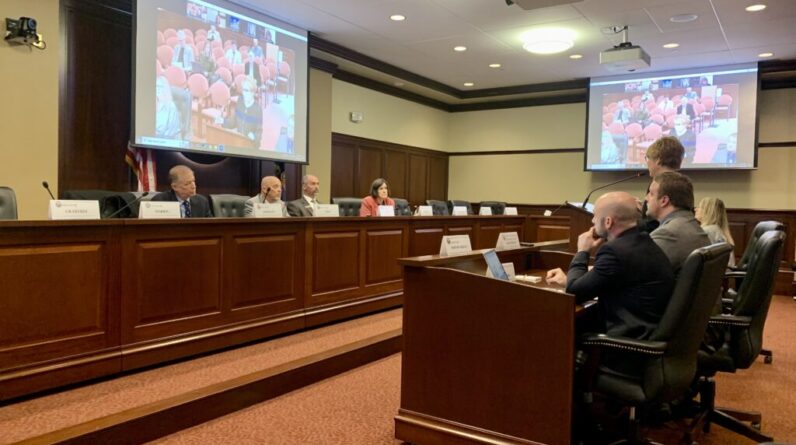
Federalism limits national power by dividing the authority between the central government and state governments, ensuring a balance of power and preventing any single entity from becoming too dominant. This system promotes the idea of dual sovereignty, where both the national and state governments have separate and distinct powers, creating a system of checks and balances.
By distributing power, federalism allows states to make decisions that are best suited to their specific needs while also providing a framework for cooperation and coordination among states and the national government. This division of power helps safeguard against the abuse of power and ensures that the needs and concerns of diverse populations are represented at all levels of government.
Understanding Federalism’s Impact On National Power
Federalism is a system that greatly influences power distribution between the national and state governments. It is defined as the division of powers between these two entities, with each having its own set of responsibilities and authorities.
This structure is important as it limits the power of the national government, ensuring that it does not become too dominant or prone to abuse. By decentralizing power, federalism allows for a more balanced distribution of authority and protection of individual liberties.
It also fosters cooperation and coordination between the federal and state governments, promoting a more efficient governance system. Overall, federalism plays a vital role in maintaining a healthy balance between national and state power, safeguarding the rights and interests of both the government and the citizens.
Constitutional Constraints On National Power
The Constitution provides a framework for federalism, which limits national power in several ways. Firstly, the Constitution grants enumerated powers to the federal government, outlining specific areas where it has authority.
These powers include the ability to regulate commerce, coin money, and defend the country. By clearly defining its powers, the Constitution restricts the reach of the national government.
In addition, the Tenth Amendment reaffirms the principle of federalism by recognizing the reserved powers of the states.
This means that any powers not explicitly delegated to the federal government are reserved for the states or the people. Consequently, the states have a degree of autonomy in areas like education, healthcare, and criminal justice.
The Constitution also imposes various limits on national power. For example, it prohibits the federal government from violating individual rights, as outlined in the Bill of Rights.
Moreover, the process of amending the Constitution itself requires a supermajority consensus, making it difficult for the national government to expand its authority without substantial support.
Judicial Interpretations Of Federalism
|
Supreme Court cases shaping the balance between federal and state authority:
Key interpretations of federalism’s limitations on national power:
Impact of these decisions on contemporary issues:
|
Checks And Balances Between The Levels Of Government
Cooperative federalism and intergovernmental relations play a crucial role in limiting national power. Under cooperative federalism, the national and state governments work together to address various issues and share responsibilities.
This collaboration ensures that neither level of government becomes too dominant, thereby maintaining a balance of power. Intergovernmental relations further enhance this system by facilitating cooperation and coordination between different levels of government.
Dual federalism, on the other hand, emphasizes the separate and distinct spheres of authority for the national and state governments. This concept limits national power by clearly defining the boundaries between the two. With specific powers assigned to each level, the federal government is restricted from overstepping its authority.
The checks and balances system effectively limits national power by integrating cooperative federalism, intergovernmental relations, and dual federalism. Shared responsibilities ensure that no single entity has absolute control, promoting a balanced distribution of authority between the national and state governments.
Contemporary Examples Of Federalism’s Limitations On National Power
Contemporary examples demonstrate how federalism limits national power in various areas, such as immigration policy, the legalization of marijuana, and health care reform.
The role of states in immigration policy showcases federalism’s limitations. States have implemented their own legislation, like Arizona’s controversial SB 1070, to address immigration concerns when federal policies have been perceived as insufficient.
The legalization of marijuana has also highlighted the extent of state autonomy within a federated system. Despite marijuana being illegal at the federal level, several states have legalized its use for medical or recreational purposes, creating a conflict between state and federal law.
Health care reform and the individual mandate controversy demonstrated the limits of national power. While the Affordable Care Act imposed a national mandate, states like Texas challenged its constitutionality in court, revealing the tension between federal and state authorities in shaping health care policy.
| Contemporary Examples | Limitations on National Power |
|---|---|
| The role of states in immigration policy | States implementing their own legislation |
| The legalization of marijuana and state autonomy | Conflict between state and federal law |
| Health care reform and the individual mandate controversy | Tension between federal and state authorities |
Competing Interests And Conflicts Within Federalism
Federalism is a system that distributes power between a central government and individual state governments. This division of power creates tension and competition among different levels of government, limiting the national government’s authority.
One source of conflict within federalism is the competing interests and clashes between state and federal governments. These tensions arise due to differing political and ideological views on the boundaries of federal power.
Public opinion also plays a crucial role in shaping the impact of federalism on national power. The dynamic nature of federalism ensures that power remains dispersed, preventing any one entity from exerting excessive control. Through these mechanisms, federalism acts as a check on national power, promoting a more balanced governance structure and safeguarding the rights and autonomy of individual states.
Future Prospects Of Federalism In Limiting National Power
As the landscape of our society and technology continues to evolve, the dynamics between the federal and state governments in limiting national power may undergo potential shifts. These shifts can have significant implications for how federalism operates in the future.
The evolving societal landscape, with its diverse needs and interests, poses a challenge in balancing the powers of the national government. The federal-state dynamics need to adapt and find innovative ways to address the complex issues that arise in a diverse nation.
Furthermore, the rapid technological advancements also impact how federalism limits national power. The emergence of digital platforms and global connectivity introduces new forms of power and influence that must be considered in the context of federal-state relations.
Therefore, as we look ahead, it becomes crucial to closely examine and evaluate how federalism can continue to effectively limit national power by navigating the evolving societal and technological landscapes while maintaining a delicate balance between the needs of a diverse nation.

Credit: www.econlib.org
Frequently Asked Questions For How Does Federalism Limit National Power
How Does Federalism Serve To Limit The Power Of The Government Quizlet?
Federalism limits government power by dividing powers between the federal and state governments, preventing any one entity from having too much authority. This promotes a balance of power and protects individual rights and freedoms.
What Does Federalism Limit?
Federalism limits the power of the central government, as it divides authority between the national and state levels. This ensures a balance of power and prevents any one entity from becoming too powerful.
What Are The Three Limits To The Power Of The Federal Government?
The three limits to the power of the federal government are delegated powers, reserved powers, and concurrent powers.
How Does Federalism Strengthen The National Government?
Federalism strengthens the national government by dividing powers between the central and state governments. This ensures a balance of power, preventing any one entity from becoming too dominant. It promotes cooperation and healthy competition among states, enhancing overall governance and representation.
Conclusion
Limiting national power is a fundamental aspect of federalism. By dividing power between the national and state governments, federalism ensures a system of checks and balances that prevents any one authority from becoming too powerful. This decentralized approach promotes individual liberties and allows for regional diversity, fostering a more inclusive and responsive government.
Federalism serves as a crucial framework to protect against tyranny, ensuring a well-balanced governance structure for a nation.




